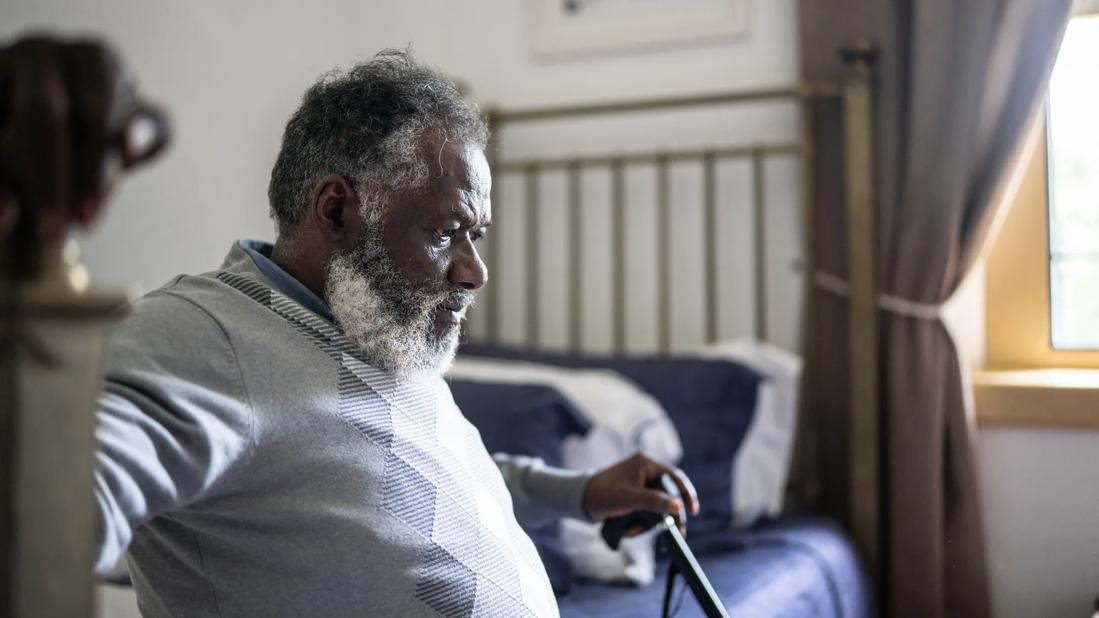Early Warning Signs of a Heart Attack
Recognizing subtle symptoms, like cold sweats, stomach discomfort and nausea, could be the key to survival

Your body may be warning you about a heart attack. The question is, are you listening?
Some people experience early signs of a heart attack (myocardial infarction) in the day or hours leading up to a cardiac event — and those indicators may be much less obvious than you might expect.
Recognizing early heart attack symptoms could save your life or the life of someone around you, says cardiologist Jacqueline Tamis-Holland, MD. Here are the red flags that deserve your attention.
7 early signs of a heart attack
Heart attacks can be sudden and unmistakable, of course. A person may clutch their chest in pain, start sweating buckets and even collapse. (That’s probably what you typically imagine when you think of someone having a heart attack.)
But that’s NOT ALWAYS the case, clarifies Dr. Tamis-Holland.
In some people, heart attacks come on more gradually with signs that may not seem like an emergency. Early warning signs that can be easy to shrug off include:
- Pressure or tightness in your chest (rather than pain)
- Pain in areas such as your arms, jaw, neck or back
- Cold sweats
- Heartburn or indigestion
- Shortness of breath
- Nausea or vomiting
- Unusual fatigue
“If you’re having some of these subtle symptoms of a heart attack and you don’t think you’re at risk for a heart attack, it makes it easier to ignore those warning signs and brush them off as something else,” says Dr. Tamis-Holland.
But ignoring these signs can be a life-threatening decision, she warns.
Heart attacks result from a blockage in one of the blood vessels in your heart, after all. A blockage means that blood can’t get to your heart. Without blood, your heart muscle begins to die.
If blood flow isn’t quickly restored, the result can be permanent heart damage or death.
Are warning signs different for women than men?
Chest pain or pressure is the most common symptom of a heart attack, no matter your sex. It can feel like someone (or an elephant, to use a popular metaphor) is sitting on your chest.
But about 30% of women are more likely to experience less-obvious symptoms while having a heart attack, notes Dr. Tamis-Holland. That includes:
- Shortness of breath, fatigue and insomnia that started before the heart attack
- Pain in their back, shoulders, neck, arms or abdomen
- Nausea and vomiting
In addition, women are less likely to have that common chest pain feeling (particularly in the center of their chest) or indigestion-like discomfort.
These subtle signs are especially concerning given the heightened dangers that a heart attack brings to women. Research shows that women are more than twice as likely than men to die after a heart attack.
Know your heart attack risk factors
Certain conditions and lifestyle choices raise your risk for a heart attack. It’s best to be extra cautious if you experience vague heart attack symptoms and have:
- Obesity
- Diabetes
- A history of smoking
- A history of heart disease or previous heart attack
- High blood pressure or high cholesterol
- A family history of heart attacks
But know this, too: Anyone, no matter their age, sex or health status, can have a heart attack. In fact, heart attacks are on the rise among young people under the age of 40.
When to call 911
If there’s even a chance you think you’re having a heart attack, act quickly to get emergency care. Without urgent treatment, heart tissue begins to die — and the damage could be irreversible.
“Time is muscle,” Dr. Tamis-Holland stresses. “The sooner your provider starts treatment, the better your outcome. Quick treatment can be critical for survival.”
If you believe you’re having a heart attack, it’s best to call 911 for emergency care (in the U.S.) instead of driving yourself. That’s because emergency responders can provide care on the way to the hospital and radio ahead so the ER is prepped for your arrival.
Every minute counts when you’re having a heart attack. Emergency crews starting care right away is vital when it comes to restoring blood flow.
What’s more, mild heart attack symptoms can swiftly turn severe. Some people faint or lose consciousness during a heart attack — a moment when you certainly don’t want to be behind the wheel.
And even if a loved one is driving you, it could be dangerous (and scary) for you both if your symptoms progress as you head to the hospital.
Bottom line? “When in doubt, err on the safe side and call 911,” Dr. Tamis-Holland advises.